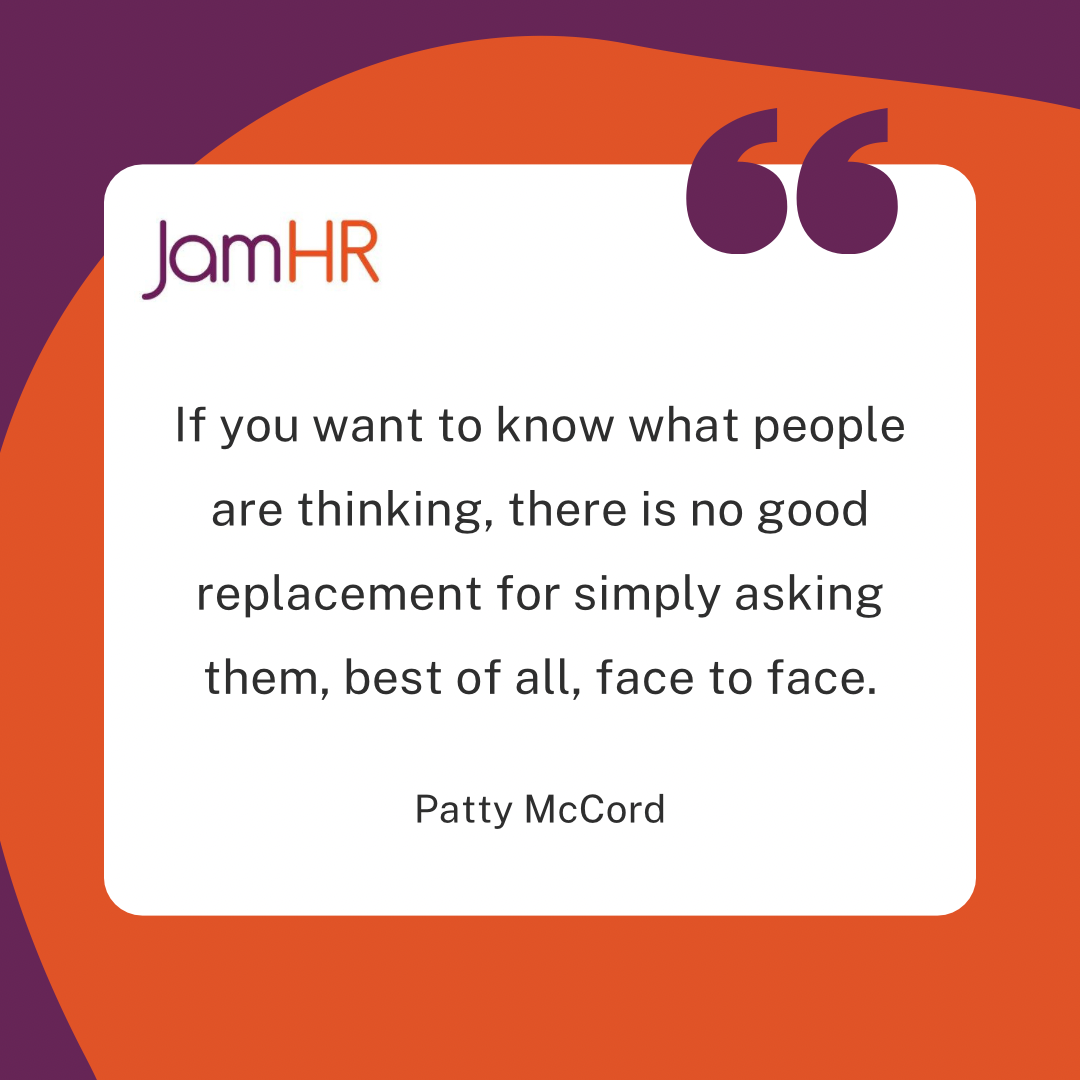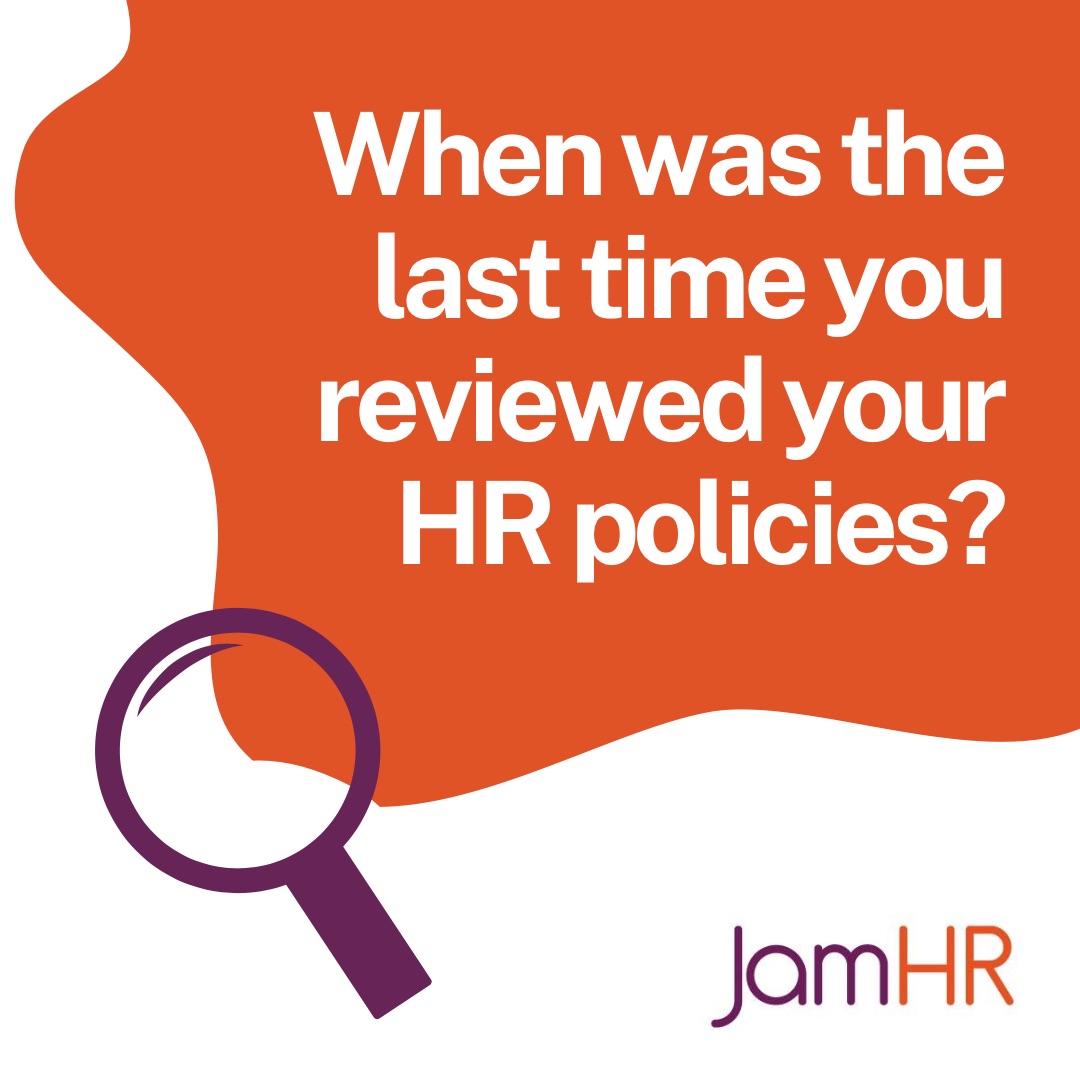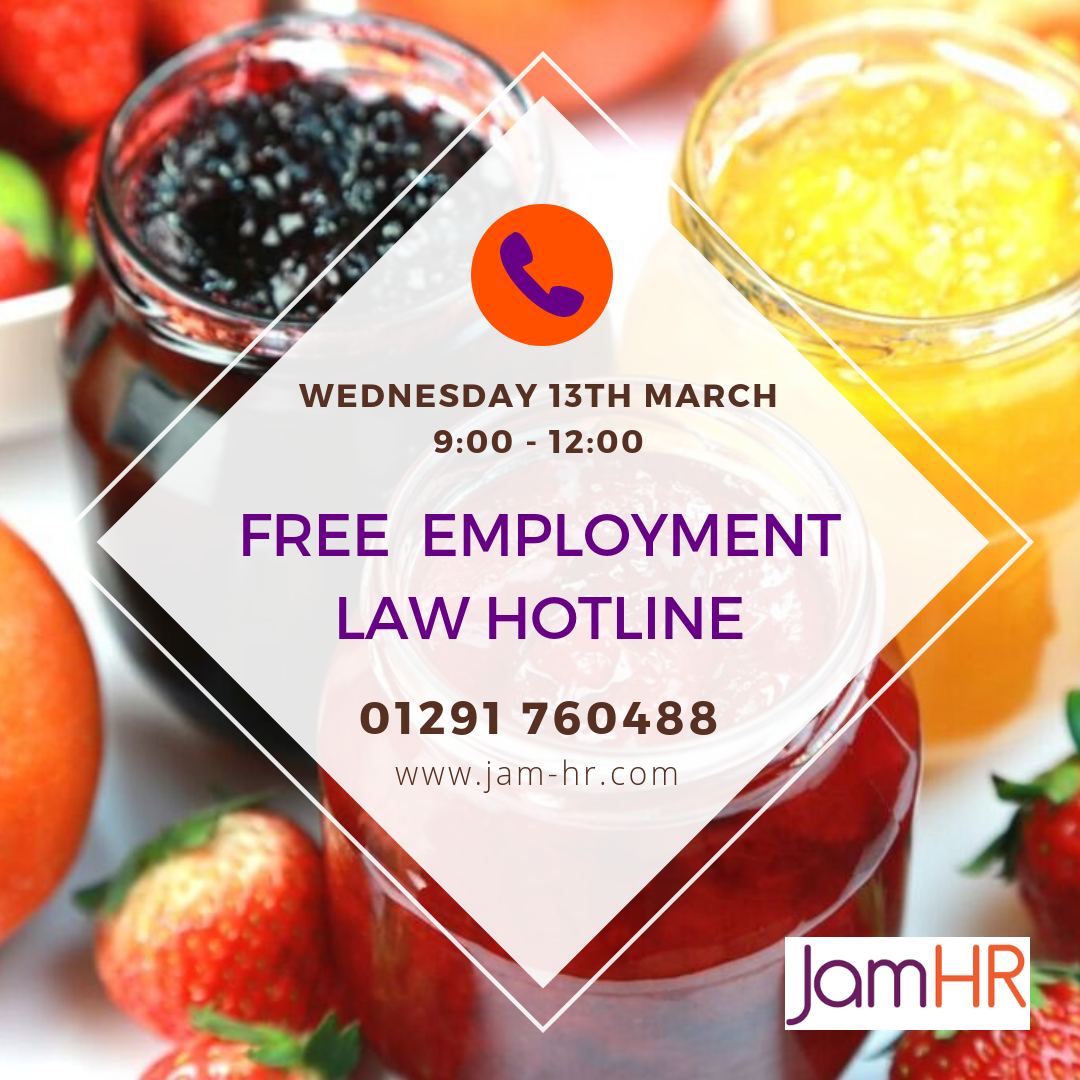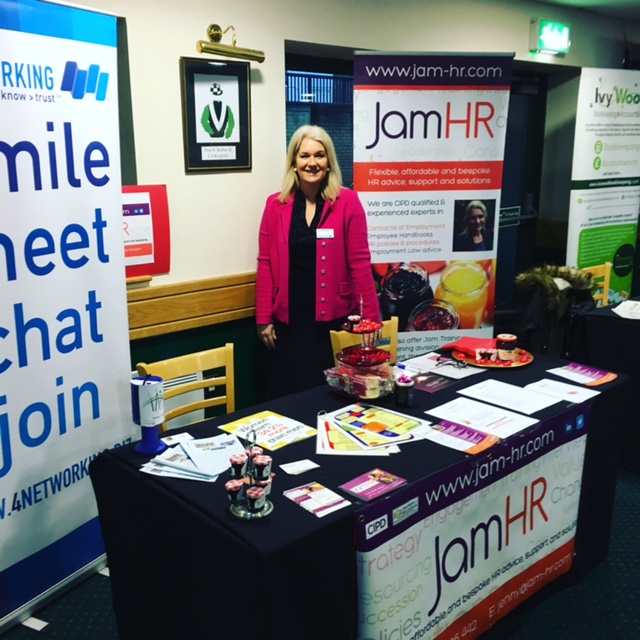“I’ve worked alongside Jenny for over 10 years (she actually recruited me). I’ve always found Jenny to be an excellent HR professional that has supported, guided and educated and helped me develop personally and professionally. I have only optimistic predictions for her new roles trajectory.”
Latest HR News
#HRquote
19/02/2024

Happy 9th Birthday!
29/01/2024

Severe weather
17/01/2024Five common employer queries about severe weather - Personnel Today
HR policies
16/01/2024

Minimum Wage 2024
15/01/2024
Are you aware of the increased minimum wage rates taking effect from April 2024? ⬆️
https://www.gov.uk/government/news/largest-ever-cash-increase-to-the-minimum-wage
Thrilled! #recognition #award #top100 #zokit #newport #chepstow #monmouth #southwales
04/10/2022
We are delighted to announce that we are a Finalist for the Top 100 Go-To Businesses in South Wales
21/09/2022
.png)
Our thoughts and prayers are with King Charles III and his family at this sad time.
20/09/2022
Outsourced HR Made Easy
19/01/2022

COVID-19 Testing
07/04/2021Ready for the return to work? All employers, with 10 or more employees, with staff who are unable to work from home are able to register until 12 April 2021 for free lateral flow test kits for their workplace and, following registration, free test kits will be provided until 30 June 2021.

Happy Birthday to us!
22/01/2021Today we celebrate! Hard work, self belief and loving what we do is how we have got here. Along with many wonderful people who have been with us on the journey. Thank you. #HR #people #runningyourownbusiness #birthday
.jpg)
Q: What plans should employers make surrounding COVID-19 vaccinations?
07/12/2020Q: What plans should employers make surrounding COVID-19 vaccinations?
With a COVID-19 vaccines now approved, GPs have been notified to prepare for a mass vaccination programme. This starts from tomorrow, 8th December 2020.
Employers should consider having a policy around healthcare and vaccinations, including COVID-19.
Employers should prepare for what to do about employees who refuse to be vaccinated and many other issues.
Encouraging vaccination
In the UK generally whilst vaccination is encouraged it has not previously been mandatory and this is unlikely to change for COVID-19. Some employers might have a right to discipline and dismiss employees who refuse vaccination based on contractual powers in their employment contracts if these contain widely-drafted medical testing and treatment clauses. However, this will be unusual. Even with a clause, injection cannot be given without consent. So, employers may be faced with staff coming into work who continue to refuse vaccination.
Overall it is safest for employers to follow government and NHS professional advice as the vaccination programme is rolled out and monitored. In some cases requiring workers to be immunised may trigger refusals and be counterproductive amongst those who are resistant to being told what to do.
Asking employees if they have been vaccinated
In the UK employers have a duty to provide a safe place of work. Employers who want to ask about vaccination can explain why and can argue that to protect other workers and enable the safest operation of the workplace it is necessary to request information on whether employees have been vaccinated.
The extent to which the vaccine has become widely available to the workforce. Potential shortages in supply in the early months of the vaccine, may make it difficult for employees to obtain a vaccine in the short term, so they have not been vaccinated due to reasons beyond their control.
Coronavirus (COVID-19) advice for UK employers Understand how to support your business and workforce through a global health emergency
07/12/2020

Coronavirus (COVID-19) advice for UK employers Understand how to support your business and workforce through a global health emergency
12/03/2020How employers should respond to the COVID19 threat
As the virus continues to spread, it could pose a significant threat to some organisations. We live in a global economy and many employers have operations or supply chains based overseas. The level of risk an organisation may face will depend on whether it's directly or indirectly affected in this way. An organisation may also be affected if it employs people who have travelled back, or been in contact with, anyone who has returned from an area affected by the virus. People’s health and well-being, and measures to prevent the virus from spreading should be at the heart of every employer’s response.
If the virus becomes a pandemic it could lead to wider disruptions with suppliers and customers and to shortages of fuel and other basic commodities. There may also be disruptions to public transport and large social or sporting events, and school closures.
Be informed and prepared
![]() Keep up to date with Government and public health advice: This is a fast-moving issue. Employers should keep up to date with the situation as it develops and refer employees who are concerned about infection to official and expert medical sources such as GOV.UK and the National Health Service. There are basic but effective ways to help prevent the infection’s spread including:
Keep up to date with Government and public health advice: This is a fast-moving issue. Employers should keep up to date with the situation as it develops and refer employees who are concerned about infection to official and expert medical sources such as GOV.UK and the National Health Service. There are basic but effective ways to help prevent the infection’s spread including:
![]() Making sure your workplace is clean and hygienic.
Making sure your workplace is clean and hygienic.
![]() Promoting regular and thorough hand-washing by everyone.
Promoting regular and thorough hand-washing by everyone.
![]() Providing all employees with an alcohol-based hand rub.
Providing all employees with an alcohol-based hand rub. ![]() Encouraging people to use and bin tissues.
Encouraging people to use and bin tissues.
![]() Develop a contingency plan: Every organisation will need to assess its own level of exposure to business disruption caused by the virus. If it has a site, conducts business or has supply chains in China or an affected region, there will be a direct impact to the company’s day-to-day operations. The plan will need to take account of current and potential impacts and manage the specific business risks associated with the disruption, including service delivery and workforce issues. Communicate the plan to key teams and individuals across the business.
Develop a contingency plan: Every organisation will need to assess its own level of exposure to business disruption caused by the virus. If it has a site, conducts business or has supply chains in China or an affected region, there will be a direct impact to the company’s day-to-day operations. The plan will need to take account of current and potential impacts and manage the specific business risks associated with the disruption, including service delivery and workforce issues. Communicate the plan to key teams and individuals across the business.
![]() Build a contingency team: Identify a person, or small group of people, to take responsibility for operating the contingency plan and allocate clear responsibilities for its implementation.
Build a contingency team: Identify a person, or small group of people, to take responsibility for operating the contingency plan and allocate clear responsibilities for its implementation.
![]() As the situation develops: Those responsible for the contingency plan should meet regularly to review the preparations and ensure they are still fit for purpose. It’s important to act early, even if planned contingencies are not then needed. Advice for employees returning from travel
As the situation develops: Those responsible for the contingency plan should meet regularly to review the preparations and ensure they are still fit for purpose. It’s important to act early, even if planned contingencies are not then needed. Advice for employees returning from travel
The Government and NHS advise:
![]() There are some countries and areas where there’s a higher risk of coming into contact with someone with COVID-19. The NHS lists a number of countries/areas where it may be necessary to get medical advice: check out the NHS travel adviceand how to contact NHS 111.
There are some countries and areas where there’s a higher risk of coming into contact with someone with COVID-19. The NHS lists a number of countries/areas where it may be necessary to get medical advice: check out the NHS travel adviceand how to contact NHS 111.
![]() Government data on COVID-19 is updated at 14:00 daily, and it’s vital that organisations keep up to date with the latest official advice. Currently anyone who has returned from certain areas including Hubei province in China, Iran, lockdown areas in Northern Italy, or parts of South Korea in the past 14 days, should selfisolateimmediately, even if they don’t have symptoms. There’s another list of countries/areas, including other parts of mainland China or South Korea, Macau, Hong Kong, Thailand, Japan, Taiwan, Singapore, Malaysia, the rest of Italy, Vietnam, Cambodia, Laos and Myanmar, where returning travellers should self-isolate if they have a cough, high temperature or shortness of breath, even if these symptoms are mild. Check the Government website for up-to-date returning travellers information and use the NHS 111 online coronavirus service to find out what to do next.
Government data on COVID-19 is updated at 14:00 daily, and it’s vital that organisations keep up to date with the latest official advice. Currently anyone who has returned from certain areas including Hubei province in China, Iran, lockdown areas in Northern Italy, or parts of South Korea in the past 14 days, should selfisolateimmediately, even if they don’t have symptoms. There’s another list of countries/areas, including other parts of mainland China or South Korea, Macau, Hong Kong, Thailand, Japan, Taiwan, Singapore, Malaysia, the rest of Italy, Vietnam, Cambodia, Laos and Myanmar, where returning travellers should self-isolate if they have a cough, high temperature or shortness of breath, even if these symptoms are mild. Check the Government website for up-to-date returning travellers information and use the NHS 111 online coronavirus service to find out what to do next.
Look after people’s health, well-being and safety
Employees’ health, safety and well-being during a global health emergency like COVID-19 should be paramount. Employers have a statutory duty of care for people’s health and safety, and to provide a safe place to work, but there’s also a strong moral responsibility to ensure that employees feel safe and secure in their employment. Employers need to be proactive to protect their people and minimise the risk of the virus spreading.
Many people will be concerned about the risk of infection and will need reassurance. Communicate clearly to employees that they need to take basic hygiene precautions such as effective hand-washing, avoid travel to affected areas and/or coming into contact with infected or potentially infected people. Follow official public health and medical advice closely and advise them on what to do if they think they may have caught the virus, or are at risk of contracting it.
As the spread of the virus continues, employers are likely to face the following situations:
![]() If employees have been told by a medical professional to self-isolate: The advice from the Government is that if NHS 111, or a doctor, advises an employee or worker to self-isolate, they are entitled to Statutory Sick Pay. This includes individuals who may be a carrier of COVID-19 who may not have symptoms. Employers should use discretion around the need for medical evidence for a period of absence where an employee is advised to self-isolate in the current exceptional circumstances. Employees can self-certify for the first seven days. CIPD also recommends that employers providing contractual sick pay should provide this if a member of staff is asked to self-isolate by a medical professional even if they have no symptoms. Alternative options to providing sick pay are to allow people who are asked to selfisolate to work from home wherever possible, and continue to pay as normal.
If employees have been told by a medical professional to self-isolate: The advice from the Government is that if NHS 111, or a doctor, advises an employee or worker to self-isolate, they are entitled to Statutory Sick Pay. This includes individuals who may be a carrier of COVID-19 who may not have symptoms. Employers should use discretion around the need for medical evidence for a period of absence where an employee is advised to self-isolate in the current exceptional circumstances. Employees can self-certify for the first seven days. CIPD also recommends that employers providing contractual sick pay should provide this if a member of staff is asked to self-isolate by a medical professional even if they have no symptoms. Alternative options to providing sick pay are to allow people who are asked to selfisolate to work from home wherever possible, and continue to pay as normal.
![]() If an employer sends people home as a precaution: Employees are following the reasonable instruction of their employer and should get their normal pay.
If an employer sends people home as a precaution: Employees are following the reasonable instruction of their employer and should get their normal pay.
![]() If employees choose to self-isolate but have not been advised to by a medical professional, and have no symptoms: Employees who voluntarily self-isolate without symptoms, and without their employer’s agreement, could be required to attend work by their employer. However, employers should take people’s concerns seriously, especially if there are underlying health conditions, including mental ill health.
If employees choose to self-isolate but have not been advised to by a medical professional, and have no symptoms: Employees who voluntarily self-isolate without symptoms, and without their employer’s agreement, could be required to attend work by their employer. However, employers should take people’s concerns seriously, especially if there are underlying health conditions, including mental ill health.
![]() If an employee’s children are sent home because of school closure: Many employees would be able to work from home and employers would have to expect there to be some disruption to a person’s ability to work as normal, depending on the child’s age. Employees may choose to take this time off as holiday so normal processes and pay apply. If an employee is unable to work from home, they could be granted unpaid emergency time off or unpaid parental leave.
If an employee’s children are sent home because of school closure: Many employees would be able to work from home and employers would have to expect there to be some disruption to a person’s ability to work as normal, depending on the child’s age. Employees may choose to take this time off as holiday so normal processes and pay apply. If an employee is unable to work from home, they could be granted unpaid emergency time off or unpaid parental leave.
Free Employment Law Hotline - save the date!
14/02/2019

Local HR provider signs sponsorship deal with Garden City FC
13/07/2017 Jam HR are delighted to announce that we have signed a sponsorship deal with Garden City FC, Chepstow. We are sponsoring the U8's new kit which will be available for the start of the football season!Jam HR finalist in the category of Outstanding Contribution
20/04/2017

We are thrilled to have been shortlisted in the category of Outstanding Contribution for the South Wales Business Awards, to be held on 18th May at Cardiff City Stadium!
Lovely thank you gift from a happy client today!
16/02/2017
Jam HR at the SE Wales Business Show
10/02/2017
Christmas in the workplace: Our 5 favourite queries
20/12/20161. What should I (employer) do to prepare for the festive season?
Check that in your Terms and Conditions of Employment, Policies and Employee Handbook, you have covered harassment and unwanted/inappropriate behaviour or write a statement on the behaviour expected of your employees when on a Company night out.
2. Am I responsible (employer) for what happens at a Company Christmas night out?
That depends, but generally yes if the event and potential wrongdoings occur " in the course of employment".
3. Can employees be disciplined for misconduct after a Christmas party?
Yes!
4. Can I ask employees to take holiday leave over Christmas and New Year?
If the business closes, then this arrangement should be explained in the employees' Contracts e.g. holiday leave to be taken at a particular time. You could also build notice required for time off and the Company Christmas shutdown arrangement into your Annual Leave Policy.
5. What if travel disruption (caused by weather or strikes) is the reason for an employee returning to work late after the Christmas period?
Really topical question with potential strike action on rail and airlines planned this Christmas. Although you have no obligation to pay your employees, we advise you offer flexibility and some alternative options such as: work from another location; make up the time later; or take as Holiday Leave.

Flexible working
06/11/2015In June 2014 the law changed around flexible working, allowing all employees to request this and not just parents and carers. Employers have 3 months to resolve the request.
How to calculate holiday pay
06/11/2015The Working Time Regulations provide for 5.6 weeks’ (or 28 days’) paid leave per year and state that a worker has the right to receive a week’s pay for a week of leave. European law says that holiday pay should be the same as normal remuneration. And so, commission, overtime, allowances and bonuses need to be considered for inclusion in holiday pay. This only applies to the first 4 weeks. The calculation of holiday pay will vary between different organisations, depending on the various elements that make up “normal pay” and you should take specific advice relevant to you.
If you would like us to update any of your Policies, or you need advice on any of the above legislative updates, or help with dealing with any grievances or claims, then please contact us at Jam HR.
Limits on unfair dismissal tribunal awards increase
06/11/2015From 6 April 2015, the limits on the amount of compensation that an employment tribunal can award for unfair dismissal increase. So the limit on the compensatory award and the amount of “a week’s pay” for calculating the basic and additional award will rise.
The rise in the limit on the amount of a week’s pay also affects redundancy payments. The maximum guarantee payment payable to an employee in respect of a workless day also increases.
Major changes to pension rights
06/11/2015There will be a significant increase in the flexibility around accessing defined-contribution or money purchase pensions savings. At present, in most cases, the only option for people in one of these workplace pension schemes is to purchase an annuity.
From 6 April 2015, individuals aged 55 or over will be able to access their pension funds flexibly, subject to their marginal rate of tax. There are different options in how they will be able to do this and it will still be possible to purchase an annuity or receive a pension from an occupational scheme, as under the current rules.
Ordinary parental leave extended
06/11/2015With all the attention focused on the introduction of shared parental leave and pay, it is easy to forget that the right to take up to 18 weeks’ unpaid parental leave (which applies to employees with at least one year’s continuous employment) is being extended.
Currently, it applies to parents of children under five unless the child has a disability, in which case the age limit is 18. From 5 April 2015, it applies to parents of children under 18 in all cases.
Adoptive parents’ rights are enhanced
06/11/2015Adoptive parents’ rights are to be more closely aligned with those of mothers taking maternity leave.
Currently, to qualify for adoption leave, an employee must have 26 weeks’ service with the employer. From 5 April 2015, this continuous service requirement for adoption leave will no longer apply. Further, the amount of statutory adoption pay will increase and adopters will be entitled to paid time off work to attend appointments to have contact with the child.
Shared parental leave takes full effect
06/11/2015The right to take shared parental leave and receive statutory shared parental pay applies to qualifying parents of babies due on or after 5 April 2015. Mothers can return to work early from maternity leave, or give advance notice that they intend to do so, and share untaken leave with their partner. The critical point for employers is that employees can take their shared parental leave as discontinuous periods, interspersing periods of work with periods of leave. The new legislation will allow a woman to return to work early and share the remainder of her leave and pay with her partner, if she wishes. The woman will still have to take 2 weeks compulsory maternity leave after giving birth. Shared parental leave applies also to adoptive parents.
Early Conciliation
06/11/2015In May 2014 Early Conciliation through ACAS became compulsory. The Conciliation period is 1 month, although this can be extended by 14 days. The employee then has 3 months to bring a Tribunal claim or settle via an ACAS Settlement Agreement.








.JPG)
